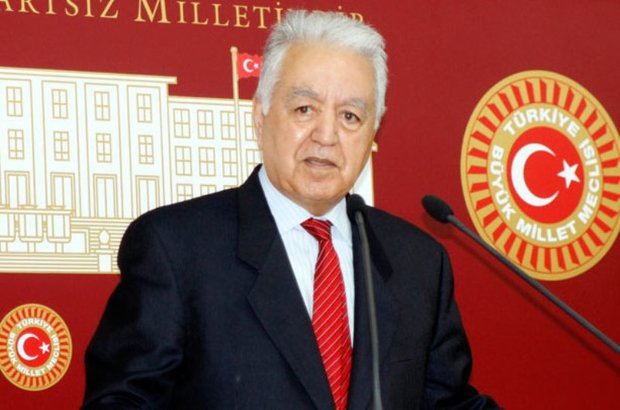General Mohammad Hossein Bagheri, Chief of Staff of Iranian Armed Forces, ended his three-day official visit to Turkey on Thursday. He had unprecedented talks with Turkish high-ranking officials including President Recep Tayyip Erdogan aimed at narrowing differences on the Syria crisis and coordinating policy on Iraq.
During his visit, General Bagheri also met with his Turkish counterpart Hulusi Akar, Turkish Defense Minister Nurettin Canikli, and director of Turkish intelligence Hakan Fidan.
Due to the importance of Tehran and Ankara cooperation to tackle common threats in the region, Payman Yazdani from international desk of Mehr News agency sat with a senior member of Peoples’ Democratic Party (CHP), Dr. Osman Faruk logoglu for an exclusive interview:
What is the importance of the visit of General Mohammad Hossein Bagheri, Chief of Staff of Iranian Armed Forces, to Turkey?
Chief of Staff of the Iranian Armed Forces Major General Bagheri's visit to Turkey at the invitation of his Turkish counterpart is highly important for at least several reasons. First, the visit is significant because of its timing. Important developments in Iraq, Syria and in the fight against terrorism are creating common security concerns and thus drawing the two neighbors closer together to consult and coordinate their policies. The importance of the visit is also attested by his reception and the length of his stay in Turkey. He is being received by President Erdoğan and is to meet with the Minister of National Defense and chief of intelligence. Finally, the symbolism of the visit: it is the first visit by an Iranian Chief of Staff to Turkey in nearly four decades. The last such visit was in 1979.
The visit once again demonstrates the ability of these two regional powers to come together when their national interests converge, despite ongoing differences over other issues.
What were Turkey’s reasons to construct a wall at its shared borders with Iran?
Closer cooperation along the Turkish-Iranian border has certainly been among the items discussed. Both sides agree on the need to prevent smuggling activities and terrorist infiltrations across their mutual border. Turkish authorities have already completed the paper work for the construction of the wall covering some 144 kilometers. It is reported that the wall will be similar to the one Turkey built along its border with Syria, with fortified cement blocks, lighting and a paved road alongside the wall. Iranian authorities are said to have welcomed the project.
What is your assessment of Iran and Turkey’s common stance toward the independence referendum of Iraqi Kurdish region promised by Masood Barzani on 25 September?
The Kurdish referendum on 25 September is the eye of the next hurricane in the region. Turkey and Iran have already stated their objections to this step, expressing their support for the territorial integrity of Iraq. Baghdad and even some Kurdish groups oppose the referendum. The US has said “no” and the UN has declined any involvement. Whether or not Barzani will change his mind, we will have to wait and see. But even if he goes ahead and gets a “yes”, it will not automatically lead to a declaration of Kurdish independence on September 26. Barzani will bid his time and put the “yes” in his pocket as a trump card to be put on the table for independence at the most opportune time in the future. The positions of Turkey and Iran are crucial in this respect because both countries have Kurdish populations of their own. They would not allow any effort that could lead to the division of Iraq. General Bagheri’s visit should help chart a course of coordinated action on the Kurdish issue in the region.
What will be the effect of this visit on the ongoing developments in Syria?
The urgent and critical issue is Syria. The questions of Afrin, Idlib and de-escalation zones will surely be discussed in depth during General Bagheri’s visit. The sides will also exchange views on the next round of the Turkey-Iran-Russia trilateral in Astana at the end of the month, a meeting that could determine some of the next landmarks in the development of the Syrian conflict. I have always argued that Turkish-Iranian cooperation is the key to the resolution of the Syrian conflict. Regional ownership is the most effective way to forestall interventions by powers outside the region. I hope General Bagheri’s visit serves this purpose.
Interview by: Peyman Yazdani



 17:23 - 2017/08/19
17:23 - 2017/08/19






















Your Comment